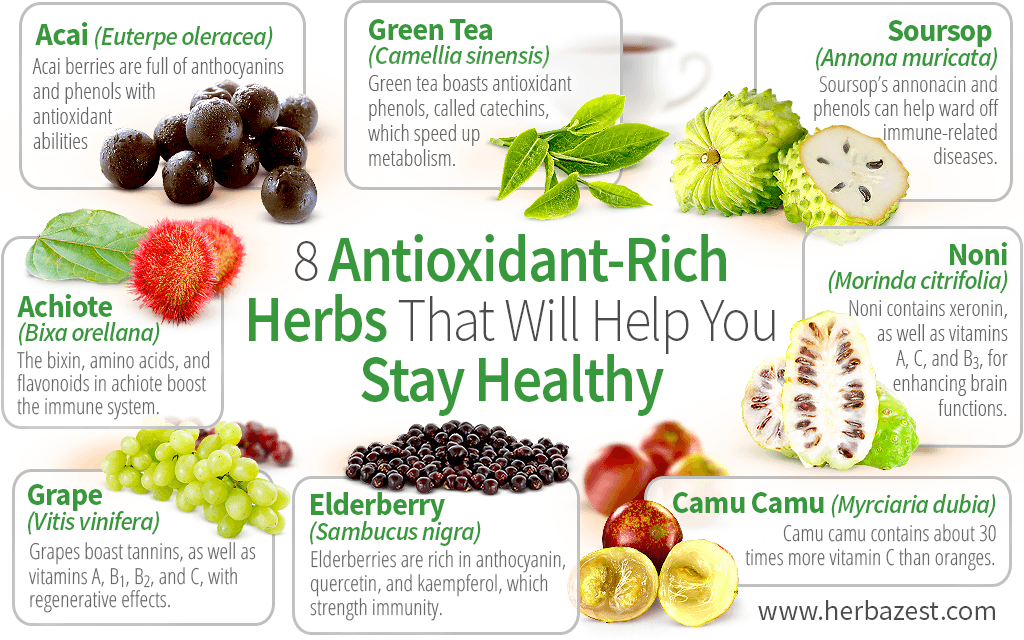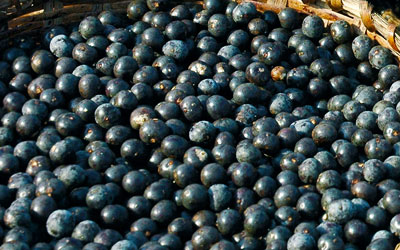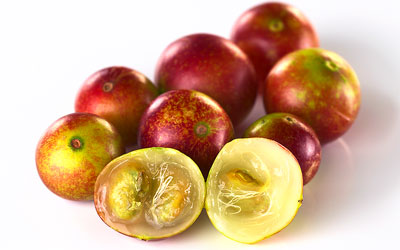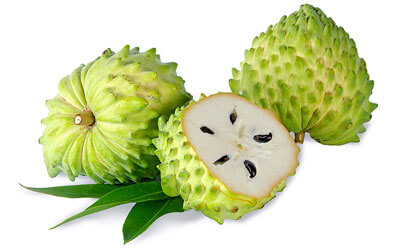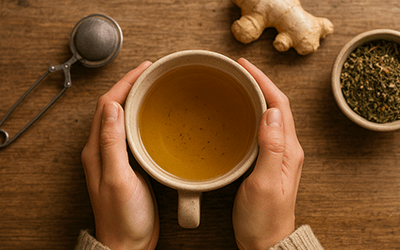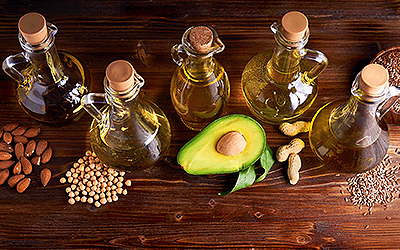Most people know antioxidants are something they should include in their diet, but they may not exactly know why they are so beneficial. "Antioxidant" is an umbrella term for various substances that work in the body to neutralize potentially damaging molecules. Their activity has an immune-enhancing effect. The immune system is essentially the body's defense against disease, and a well-boosted system can be the difference between feeling great and feeling dreadful. Keep reading to discover which antioxidant herbs will help you feel your best.
1. Acai (Euterpe oleracea)
The berries picked from acai, a South American palm tree, can be consumed raw or juiced for their considerable medicinal properties. The fruit is known for its impressive antioxidant properties.1 In fact, the berries are often hailed as a "superfood" for this very reason; their immune-boosting abilities are greater than those of other berries, such as raspberries and blueberries.
2. Green Tea (Camellia sinensis)
Arguably one of the most valuable products of the tea plant, green tea has practically unrivaled catchetin content - an antioxidant compound that is superior even to vitamin C and E in its effectiveness. For this reason, green tea is an excellent choice not only for cleansing from within, but also for increasing the body's absorption of "good" cholesterol (HDL) and minimizing that of "bad" cholesterol (LDL).
3. Soursop (Annona muricata)
Soursop, also known as graviola, is the little-known fruit of an evergreen tree native to South America. Promising studies have highlighted graviola's medicinal properties, which have proven effective against immune-related diseases, mainly due to its impressive antioxidant action.2
4. Noni (Morinda citrifolia)
Although noni is a fruit, it has a bitter taste and a rather unpleasant odor. Because of that, it is usually consumed in a supplementary form or mixed with fruit juice. Despite its flavor and smell, the fruit has notable antioxidant and antibacterial properties, which make it effective for preventing fever, respiratory infections, and colds.3
5. Camu Camu (Myrciaria dubia)
Camu camu is the common name for a cherry-like fruit growing on riverside Amazonian shrubs. It is extremely rich in antioxidant vitamin C, with its content exceeding all other vitamin-C-containing plants, such as lemon, strawberry, and oranges.4
6. Elderberry (Sambucus nigra)
The anthocyanins, powerful antioxidant compounds responsible for the characteristic dark red color of elderberry fruits, play a significant role in the prevention and treatment of immune diseases. The berries are commonly made into a syrup for culinary and medicinal purposes.
7. Grape vine (Vitis vinifera)
Grapes are one of the most popular fruits around the world. Besides being delicious, they provide significant health benefits thanks to their richness in antioxidants. They are thought to play a role in preventing age-related, degenerative diseases by reducing the amount of free radicals in the body.
8. Achiote (Bixa orellana)
Achiote is an earthy herb, generally used as a paste to season and give color to food. However, the leaves have been found to possess considerable antioxidant properties, which help improve the functioning of the immune system.5
It's easy to forget the importance of a healthy immune system, not just in fighting diseases and protecting the body, but also in helping the body maintain its homeostasis. Luckily, the best sources of antioxidants are widely affordable and available - you could even grow them in your own herb garden!
Sources
- Archivos Latinoamericanos de Nutricion, Nutritional composition and vitamin C stability in stored camu-camu (Myrciaria dubia) pulp, 2005
- Harvard Health Publications, Benefit of drinking green tea: The proof is in
- Journal of Oncology, Potential anticancer properties of grape antioxidants, 2012
- Journal of the American College of Nutrition, Beneficial effects of green tea: A review, 2006
- National Institutes of Health, Acai
- Oregon State University, The possible health benefits of anthocyanin pigments and polyphenolics, 2001
- Purdue University, Elderberry as a medicinal plant
- University of California, Davis, Nutrition Department, Antioxidant properties of acai
Footnotes:
- National Center for Complementary and Integrative Health. (2020). Acai. Retrieved September 15, 2021 from https://www.nccih.nih.gov/health/acai
- Cancer Letters. (2012). Graviola: a novel promising natural-derived drug that inhibits tumorigenicity and metastasis of pancreatic cancer cells in vitro and in vivo through altering cell metabolism. Retrieved August 9, 2022 from: https://pubmed.ncbi.nlm.nih.gov/22475682/
- Journal of Medicinal Food. (2011). Morinda citrifolia Linn leaf extract possesses antioxidant activities and reduces nociceptive behavior and leukocyte migration. Retrieved August 9, 2022 from: https://pubmed.ncbi.nlm.nih.gov/21548805/
- Journal of Nutritional Science and Vitaminology. (2011). Anti-inflammatory effects of seeds of the tropical fruit camu-camu (Myrciaria dubia). Retrieved August 9, 2022 from: https://pubmed.ncbi.nlm.nih.gov/21512298/
- Phytotherapy Research. (2013). Safety and Efficacy of Bixa orellana (Achiote, Annatto) Leaf Extracts. Retrieved August 9, 2022 from: https://pubmed.ncbi.nlm.nih.gov/24357022/

